"Diana’s Son Is Continuing the Campaign to Disrupt Charles’ Future Reign": An Interview With Tina Brown
From lunches with Princess Diana to the Oprah interview, everything makes it into Brown's new book, 'The Palace Papers.'
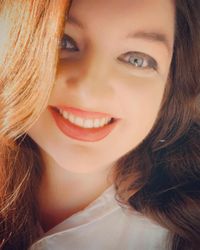
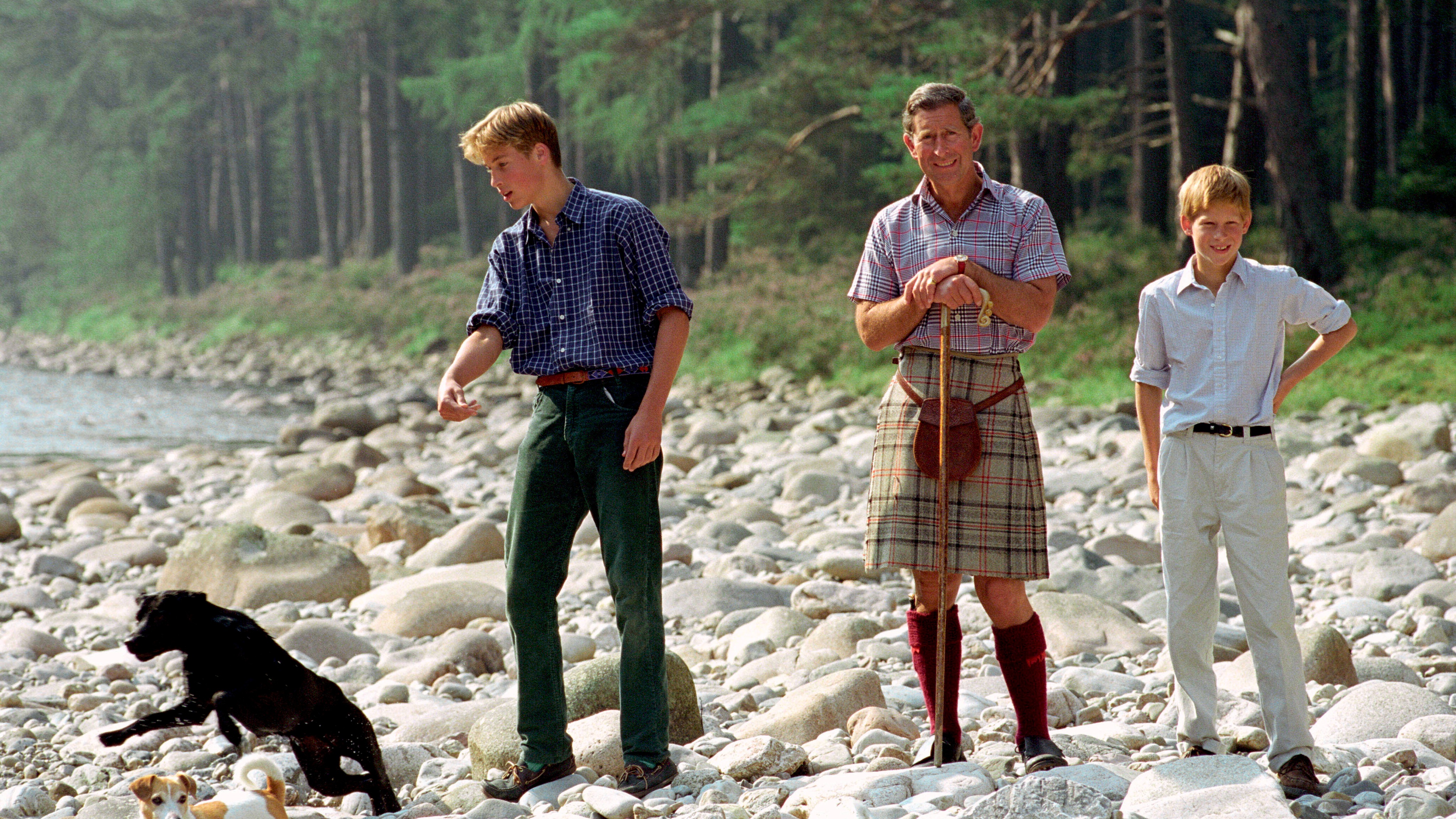
Tina Brown is back, and it’s as though she never left. Her newest work, The Palace Papers: Inside the House of Windsor—The Truth and the Turmoil, picks up where her 2007 best seller The Diana Chronicles left off, taking us behind the scenes through the last 25 years of the British monarchy. The British royal family has been a topic Brown has covered since her days as editor-in-chief at Tatler magazine, when a young ingénue named Diana Spencer arrived on the scene and soon catapulted into her role as the Princess of Wales. Since her Tatler days, Brown has gone on to edit Vanity Fair, The New Yorker, and, most recently, The Daily Beast (which she also founded), in addition to other prominent masthead appointments. This is Brown’s first book wholly about the royal family since 2007—and, well, a lot has happened in 15 years.
“The British monarchy is a more than 1,000-year-old institution with a 96-year-old CEO and a septuagenarian waiting in the wings,” Brown writes in The Palace Papers, out April 26. “It cannot be expected to be nimble.” Without agility, one might ask—including Brown, on the book’s back cover—can the monarchy survive? We talked to the author about just that.
Marie Claire: You write in the book that the golden era of the 21st century monarchy was the eight-year stretch after William and Kate’s wedding in 2011 until 2019. With Harry and Meghan now gone, William and Harry in battle, Andrew’s reputation forever ruined, Philip’s death, and the Queen in frail health—can the monarchy survive these hits?
Tina Brown: This is a very rough period which, of course, happens at a time when the Queen is in her twilight days. There’s a difference between the rough time they had in the ’90s—that, of course, was a rocky time when pretty much all of [the Queen’s] children got divorced in the same year—and the Diana crisis was raging. This is a particularly rough time. I think it can survive because of the distinctive players that are following next.
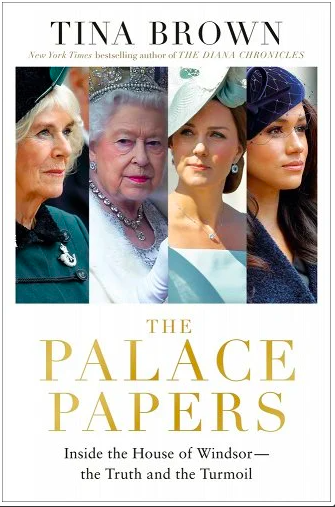
There’s a pessimism about Charles amongst many circles, but I think he’ll be a transitional monarch. There is a tremendous amount of faith in the Cambridges. [The royal family] are blessed with one pair of people that seem to have accepted their duty and have been willing to serve in the way that they have been trained to do. It’s remarkable to see, really, and we’re lucky, so far, anyway, that William has never shirked his destiny. He’s quite like the Queen temperamentally—a prudent, cautious guy, a sober guy, a decent guy.
In Kate, the stunning thing about it was, people used to think Kate, who’s from a middle-class family, not an exalted pedigree in any way: is she going to be able to carry this out? It seems like now, everybody on earth wonders what they would do without her. She is extraordinary. William was prudent—it took him 10 years to decide she was the one. He really asked her to train, essentially, to be his wife. I don’t know many modern young women who would have waited 10 years. This is a young woman who had a degree in art history from St. Andrews; she’s not a flighty young woman at all. She’s a serious woman, but she, nonetheless, was willing to wait for William and sort of built her life around him without being a doormat. She’s very unusual.
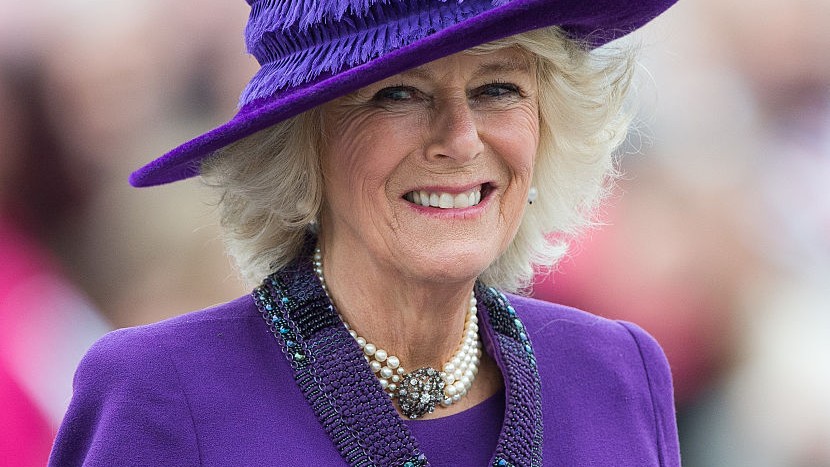
MC: Can you even imagine, when you were sitting at that lunch [written about in the book] with Anna Wintour and Princess Diana in July 1997—could you even imagine a universe where Camilla would have been deemed worthy of being queen consort by Her Majesty?
Get exclusive access to fashion and beauty trends, hot-off-the-press celebrity news, and more.
TB: Absolutely not. As you see in the book, Camilla wasn’t even invited to the Dance of the Decades, the birthday at Windsor Castle; everyone in society went for the Queen Mother’s 100th birthday [in 2000]. She wasn’t invited to that, even though she’d been with Charles for years. She wasn’t invited to Charles’ fiftieth birthday [in 1998, though Camilla had been] the woman he had been in love with for 15 years by that point. The Queen absolutely was not willing to embrace Camilla until quite recently, until she said yes to [their] wedding [in 2005]. That was the critical turning point, but it’s still amazing to think. I’d never believe in a million years that that could have ever, ever happened.
MC: You write in the book “Ever since the death of Diana in 1997, the Queen had made it clear to all those who advised her that it could never happen again—the it being Diana’s explosive celebrity…The refrain most repeated at the pinnacle of the Palace was ‘we don’t want another Diana.’” What has the family done to prevent another “Diana,” as you say?
TB: They thought they did everything. For 20 years they’d been chugging along, trying to make the point that everyone was now in line. The Firm got itself in shape. We had the glory years, which I write about: the 2011 period of the Queen going to Ireland, Harry serving in the Army—all of it seemed as if it were righting itself. The great and fascinating thing about this family saga, which is why it makes such interesting material, is fate steps in and introduces Meghan to Harry, and all of the sudden they have it all over again. [Meghan] is a celebrity, a woman who has a lot of her own charisma and a strong will of her own, a strong sense of independence, who is not going to be subservient to this concept of hierarchy and monarchy. They had it all over again, and, in a way that was almost more unmanageable because Diana was a child, really, when she married. And [Diana] did try and did succeed at being the most amazing Princess of Wales. She did everything that was required of her. Her problem was entirely different—her problem was her husband wasn’t in love with her and that’s what sent her off into sort of an abyss, and also made her really angry.
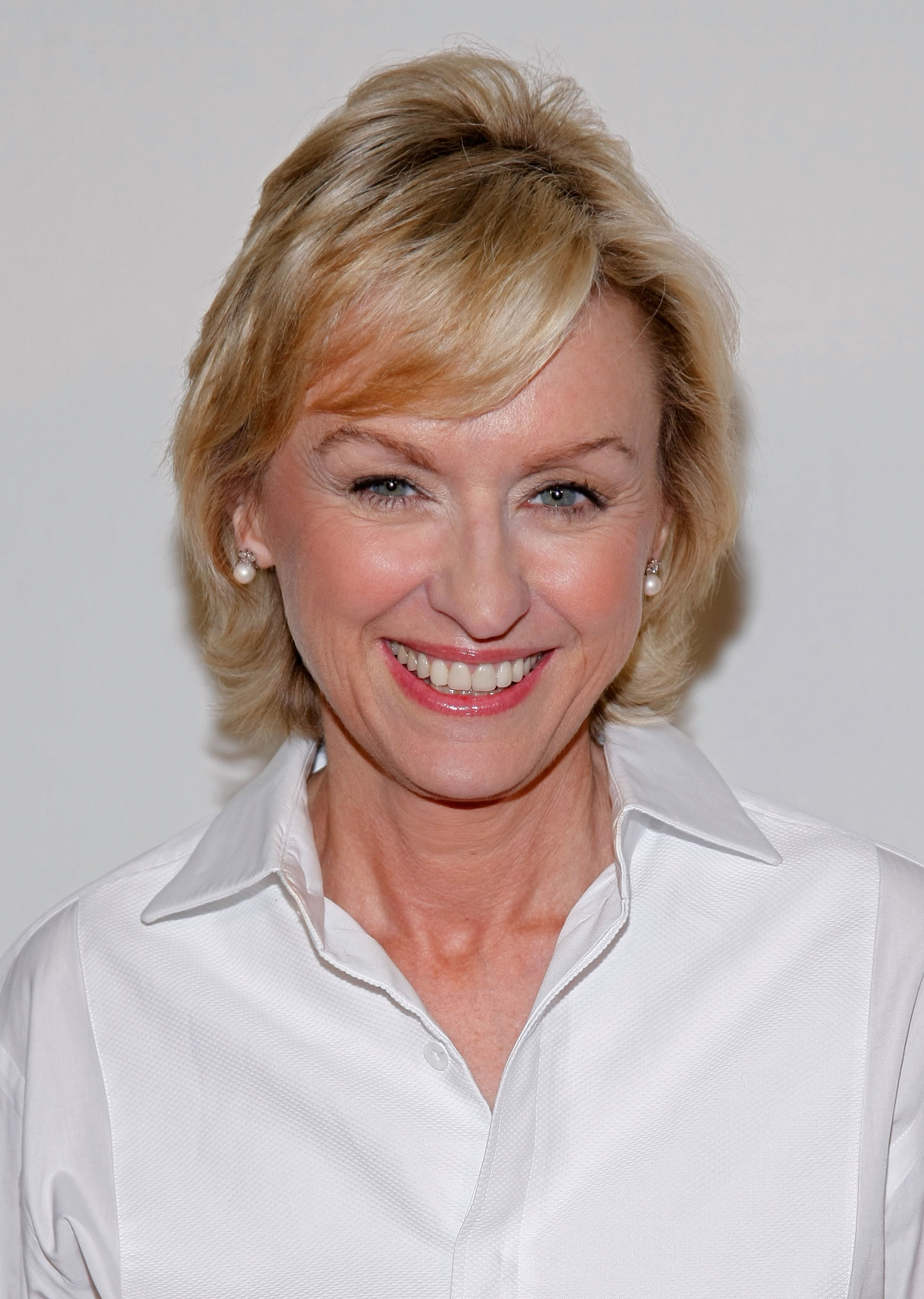
Author Tina Brown
Meghan got angry so fast, and that’s what’s rocked the family. They’re still reeling and just baffled why it seemed to go wrong so quickly. It’s still a source of great pain to them; they were also completely knocked for six when they decided to do the Oprah interview, and now Harry’s doing a book. Harry has become a disruptive force in the family. For them, it’s like Diana’s son is continuing the campaign to disrupt Charles’ future reign, and the “War of the Wales” continues. It’s a very destabilizing factor.
When you ask about the future of the monarchy, I think we have in Kate and William absolutely brilliant, well-qualified, and well-trained people positioned as future king and queen. Whether Harry will let that reign proceed in a way that everybody hopes is the question. He does seem hell-bent right now on disrupting it…Don’t forget, [Harry’s book] is going to be coming out as that transition [to Charles] is perilously close. We don’t know how long the Queen’s health will hold out. It’s a very fragile moment, and the last thing they need is that IED going off.
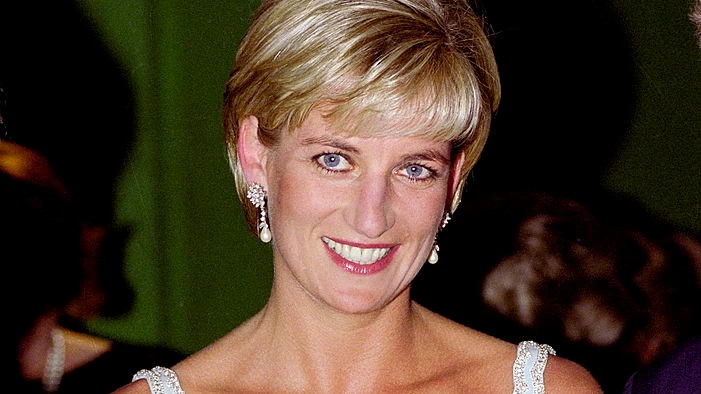
MC: You write that Diana was always more beautiful in person than in photographs—
TB: Oh my God, she really was.
MC: We all know what she was like as the Princess of Wales. I love the thought of being a fly on the wall with the three of you [Brown, Wintour, and the Princess] at this lunch in Manhattan in July 1997. What was she like as a lunch companion, as a human being?
TB: She was so warm and so immediately accessible. You didn’t feel like you were in the presence of any kind of aloof celebrity or royal person. She had that amazing gift, a gift she passed on to Harry, actually, of just being so warm, with her limpid blue eyes looking at you, confiding in you, lowering her voice to a confidential tone, asking questions. It really was like we were all girlfriends talking. That’s how she made herself so endearing to people: she would instantly connect. I felt deeply sorry for her when she talked about the pain of her marriage having gone wrong and how she was really still involved with Charles and how much she regretted things having gone wrong. It all felt immensely, surprisingly intimate. Her gift for instant intimacy was the thing that really shone forth.
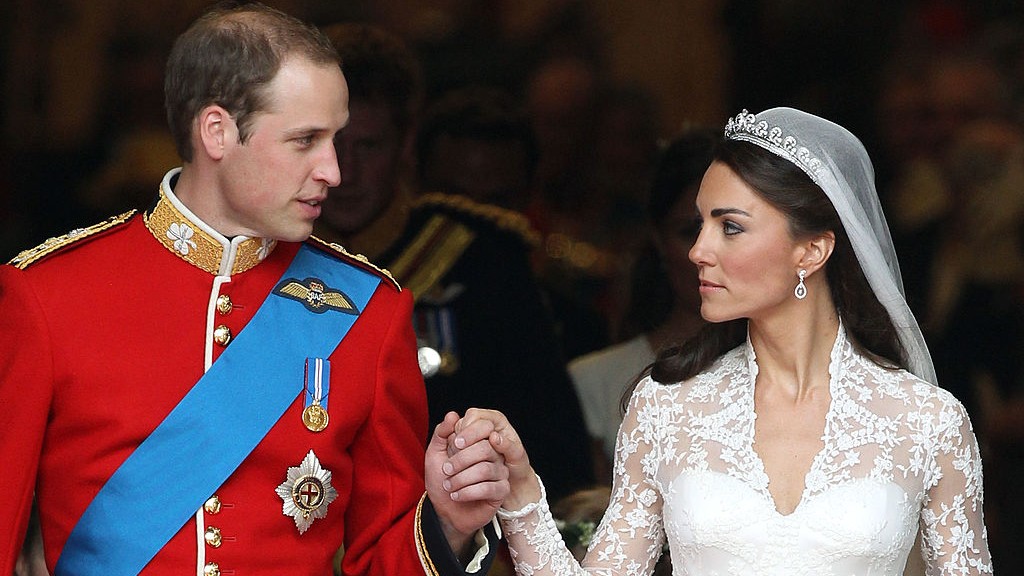
MC: You write, “In 2011, the question mark over Kate Middleton was whether a girl of such unexalted origins could successfully evolve into a future queen. Now the only question is how the House of Windsor could survive without her.” Eleven years into her role as Duchess of Cambridge, how has Kate made the royal family better?
TB: Well, for a start, she is deeply sane, right? She is sane, she is confident, she is supportive. For a start, there’s never been a concern that she would be ruffling the waters. At the same time, she’s really made it better because she has surrounded William in a bubble of family warmth he desperately wanted and needed. He’s been through an enormous amount of strife and turmoil—it wasn’t just losing his mother, but awful revelations and painful anniversaries, all of this stuff had left him extremely scarred. He needed a woman who helped soothe him down. There’s no doubt Kate soothes William and makes him feel secure and confident and gives him a haven. The Queen and Philip’s marriage was a haven for them, and the same is true for the Cambridges. [Kate] has created a world for him in Norfolk that’s just been very secure and impregnable—a family fortress.
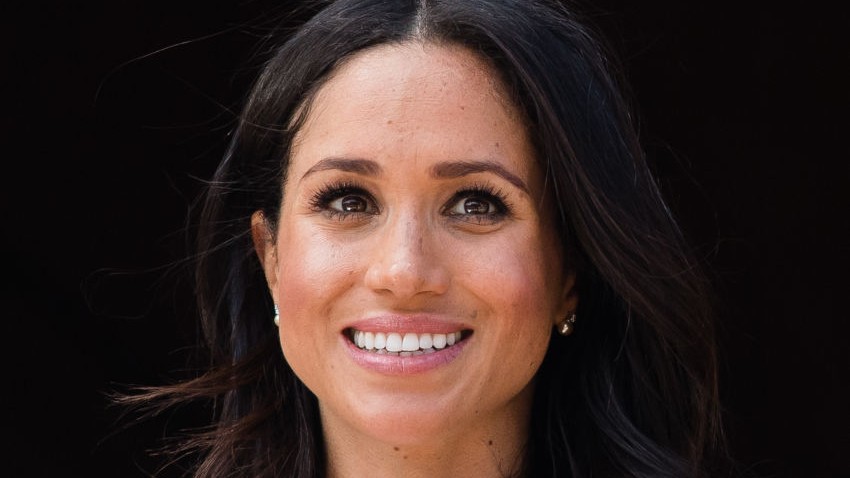
MC: During the Oprah interview, you write, Meghan signified “that the mantle of wronged royal woman was now hers”—a torch passed from Princess Diana. I remember Meghan, during her last engagement as a working royal, said, “It didn’t have to be this way.” Would there ever have been a world where Meghan could have made it work within the family? If we had a time machine and could transport back to May 2018, knowing what we know now, what could have been done differently?
TB: I think it could have been made to work extremely well. She was beloved by the public when she married Harry. If she had taken things much, much slower than she did—I think Kate was smart to be very, very slow to enter into the public realm. But Meghan really did want to come out with guns blazing as the new global royal. And I think she needed to absorb more of the culture of the Palace and understand the minefields there.
And on the Palace’s side, I’m sure they are maddening; the Palace is very traditional, decisions are made slowly. They’re not used to a formidable American, a hard-driving executive kind of woman. They do things in their own traditional way, which is extremely frustrating, I think, to anyone who has had a career, and a good one. She was used to running her life, and for Meghan to be dependent on her husband—who essentially was also dependent on the bank of Dad and his grandmother for housing and things—I think she felt incredibly disempowered by all of that. It was very, very difficult for her indeed, not to mention, the obvious difficulty was the feeling for her that she was the only woman of color in a white fortress. I’m sure it all stuck out enormously to her, feeling she could never be comfortable in that culture.
I also think Harry is a very explosive and reckless individual; I think he wanted out. They both really understood their star power, which was greater than being No. 6 in line to the throne for best assignments, getting in line for all the honors and privileges and all the rest that came along with it. And they felt that they could do better broken off from it. I’m not sure they were right, actually, but they seem to be happy in Montecito.
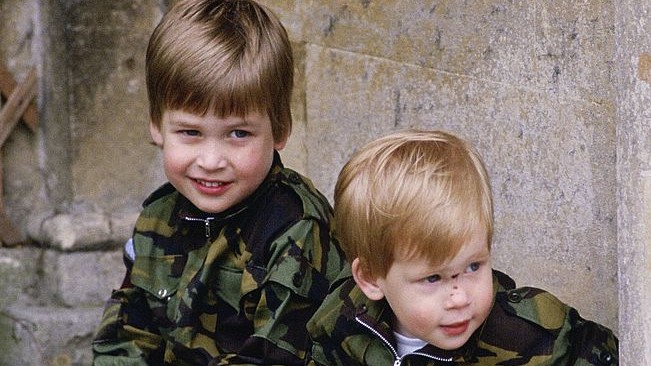
MC: You write, “As ‘the boys’ they had been indivisible, and the public loved their double act. Their mother even dressed them alike when they were young. But their identical treatment had set up unrealistic expectations. The boys were not, and could never be, equal.” With an impossible heir and spare dynamic like this at play, were William and Harry always fated to fall apart as brothers, as they have so publicly?
TB: The age gap between Andrew and Charles was much greater. Andrew really never did feel the same as Charles, because, as a child, Charles was how many years ahead of him? [Editor’s note: Charles was born in November 1948, Andrew in February 1960.] [Charles] was the big brother who was destined for the throne. There was never any thought in Andrew’s mind that he was going to be more important. However, he's not done well at all, because second, it’s a very tough role—they’re supposed to be as blameless and flawless as everybody else, as senior royals and as the monarch, but at the same time they don’t have any of those, sort of that glorious destiny, and they have to live on a royal allowance…[to be] dependent on your mother, your family, for your income. That’s quite demeaning after time. Every time the heir has a child, you slip down the royal totem pole; it’s a very difficult situation. I think the only way they can solve it is basically by having the second [child] spun off right from the beginning, like “we don’t expect you to be royal in any way.”
[With William and Harry], it was always going to become tricky. They had already become somewhat rivalrous in their outlooks to each other. Harry left the Army, and it essentially began to go wrong. Harry’s now out in the world like, “Okay now, what’s for me?” A lot of his interests were quite similar to William’s—environmentalism, conservation, Africa, all of these things Harry was interested in, too. It began to feel like, “Why is William getting all of these great portfolios and I have to sort of wait and take his second dibs?” Well, the answer is because you’re the second in line. William was always going to be able to choose what he wants to do. So that was always going to be a bit tricky.
Of course, it all depended on who Harry married. If Harry married somebody like Kate, I’m quite sure their relationship would have been preservable. But he’s pursued such a different course now from William, going off to live an essentially Hollywood life...Meghan showed him another world that he found much more exciting. I understand it, but it’s been very disruptive to their relationship.
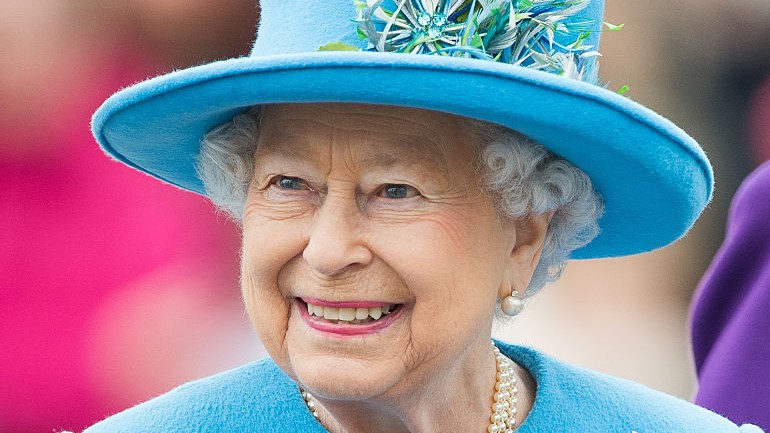
MC: The day we’re speaking is the Queen’s 96th birthday. How do you think she’d sum up the last 25 years?
TB: I think she would see the last 25 years as, in many ways until recently, a great sort of coda to her reign, which has been sadly torpedoed. I think she’s hoping to end her days with some of these painful family matters resolved. It does pain her very much to see her family split asunder; she’s been very concerned about it. Her eyes now are on the next reign. She and Charles were never close, but now she simply wants to try to make sure Charles gets everything he needs to be successful. Her focus now is what happens after she’s gone. I don’t think there’s a lot of time spent thinking about the last 25 years; she spends quite a lot of time at the moment thinking about the next 25 years.
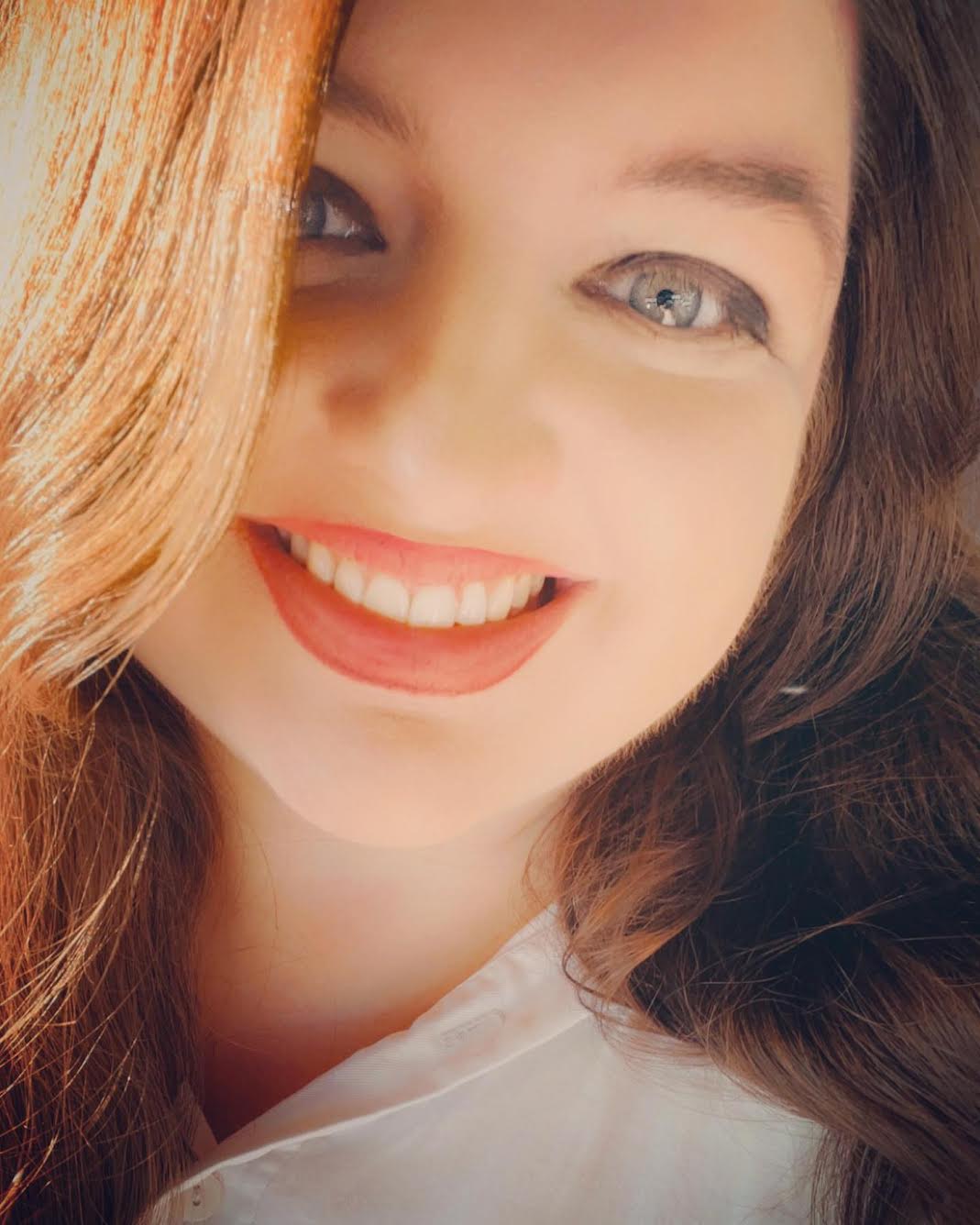
Rachel Burchfield is a writer, editor, and podcaster whose primary interests are fashion and beauty, society and culture, and, most especially, the British Royal Family and other royal families around the world. She serves as Marie Claire’s Senior Celebrity and Royals Editor and has also contributed to publications like Allure, Cosmopolitan, Elle, Glamour, Harper’s Bazaar, InStyle, People, Vanity Fair, Vogue, and W, among others. Before taking on her current role with Marie Claire, Rachel served as its Weekend Editor and later Royals Editor. She is the cohost of Podcast Royal, a show that was named a top five royal podcast by The New York Times. A voracious reader and lover of books, Rachel also hosts I’d Rather Be Reading, which spotlights the best current nonfiction books hitting the market and interviews the authors of them. Rachel frequently appears as a media commentator, and she or her work has appeared on outlets like NBC’s Today Show, ABC’s Good Morning America, CNN, and more.